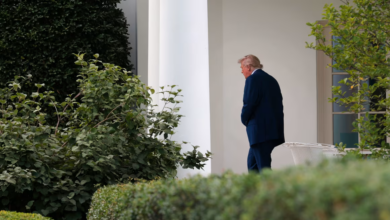BONN, Germany — Unable to persuade key neighbor Pakistan to reconsider its boycott of an international gathering on Afghanistan's future, the US and conference organizers said they will go ahead with promises of continued aid for Afghanistan after most foreign forces leave the country.
The Bonn conference is expected to address the transfer of security responsibility from international forces to Afghan security forces over the next three years, long-term prospects for international aid and a possible political settlement with the Taliban.
About 100 countries and international organizations will be represented, with some 60 foreign ministers in attendance, among them US Secretary of State Hillary Rodham Clinton.
"Our objective is a peaceful Afghanistan that will never again become a safe haven for international terrorism," German Foreign Minister Guido Westerwelle said.
The Bonn conference attendees are also hoping to agree on a set of mutual binding commitments under which Afghanistan would promise reforms and work toward goals such as good governance, with donors and international organizations pledging long-term assistance in return to ensure the country's viability beyond 2014.
Afghanistan will present a sobering view of its economic dependence on foreign aid and spending related to the huge military presence and seek assurance that donor nations will help fill the gap after most forces leave by 2015. Although donor nations will not commit to specific figures at the one-day session Monday, they will sign up to the general principle that economic and other advances in Afghanistan since the ouster of the Taliban government in 2001 should be safeguarded with continued funding.
Afghanistan estimates it will need outside contributions of roughly US$10 billion, or slightly less than half the country's annual gross national product, in 2015. It will present plans to expand mining and agriculture and boost exports, and pledge improvements in financial management and anticorruption efforts.
Pakistan is a central player in regional efforts to improve trade and strengthen historically weak economies in a strategic part of the world. But its boycott has cast a pall over the session, because it points out that nation's influence in Afghanistan and its ability to play the spoiler.
Pakistan is seen as instrumental to ending the Taliban-led insurgency in Afghanistan because of its links to militant groups and its unwillingness, from the US and NATO perspective, to drive insurgents from safe havens in Pakistan where they regroup and rearm.
Pakistan canceled its participation in protest of last month's NATO air assault, carried out from Afghan territory, that killed 24 Pakistani soldiers. The deaths fed the popular perspective in Pakistan that the US and NATO, not the Taliban, are Pakistan's principal enemies.
Pakistan's army accused NATO of a "deliberate act of aggression," an assertion the Pentagon hotly denied. Pakistan has received billions in US aid since 2001, largely in expectation of cooperation against militants.
Clinton called the deaths tragic and pledged a thorough investigation. Pakistan rebuffed her entreaties, as recently as Saturday, to reconsider and attend the conference. President Barack Obama called Pakistan President Asif Ali Zardari Sunday to reaffirm that the NATO airstrikes were not deliberate attacks and that the US is committed to a full investigation.
The US had once hoped to use the Bonn gathering to announce news about the prospect for peace talks with the Taliban, but Afghan and US outreach efforts have not borne fruit.
The reconciliation efforts suffered a major setback after the September assassination of former Afghan President Burhanuddin Rabbani, who was leading the Afghan government's effort to broker peace with the insurgents.
The final declaration of the Bonn conference is expected to outline broad principles for political reconciliation with the Taliban, a project that several leading participants in the conference increasingly predict will outlast the NATO timeline for withdrawal in 2014.
The session is also expected to address the holdup in hundreds of millions in development aid for smaller, community-based projects because of financial irregularities and corruption in Afghanistan's key Kabul Bank. The International Monetary Fund lifted some restrictions related to Kabul Bank last month, which Afghan diplomats said should give a green light to renewed international contributions. The US has held its annual contribution to between $650 million and $700 million.
Afghan President Hamid Karzai, German Chancellor Angela Merkel and UN Secretary-General Ban Ki-moon will formally open the one-day conference of about 1000 delegates. Afghanistan's western neighbor Iran also joins the conference, represented by Foreign Minister Ali Akbar Salehi.
Afghanistan is failing in two major areas in particular: security and good government. Violence has gone up sharply this year, and has spread to the once-peaceful north of the country. And widespread corruption is bedeviling attempts to create a viable Afghan government and institutions to take over when the US and NATO leave.
Afghanistan provides about 90 percent of the world's opium, the raw ingredient used to make heroin. Money from the sale of opium is also used to fuel the insurgency, helping to buy weapons and equipment for the Taliban.
A law meant to protect Afghan women from a host of abusive practices, including rape, forced marriage and the trading of women to settle disputes, is being undermined by spotty enforcement, the UN said in a report last month. The 2009 law criminalized many abuses for the first time, including domestic violence, child marriage, driving a woman to resort to suicide and the selling and buying of women. Yet the report found that in the first full year the law was in effect prosecutors filed indictments in only 7 percent of the more than 2000 alleged crimes reported.




